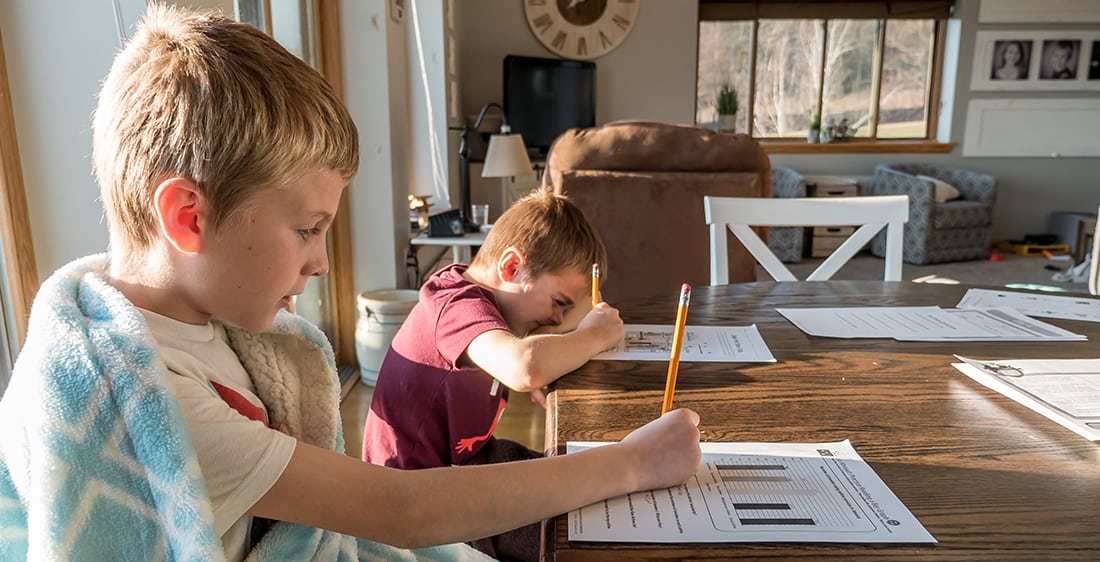


Every parent knows their kid is not average. The average kid doesn’t exist. Every kid is totally unique. Yet Idaho’s current education system tries to file and chisel children’s differences away so that they will fit into a factory model.
It's time to build an education model that embraces the extraordinary nature of every kid.
Sen. Lori Den Hartog, R-Meridian, and Rep. Wendy Horman, R-Idaho Falls, agree. These legislators are cosponsors of House Bill 215, which embraces the uniqueness of every kid by making the education system more flexible. At the heart of the bill is the creation of the new Strong Families, Strong Students grants and scholarships.
Eligible low-income families can use these grants and scholarships to build a personalized education for their child. These funds can be used for a myriad of educational needs like music lessons, after-school tutoring, therapy for students with special needs or disabilities, or to attend a private school, among many other options.
Any student can qualify for the $500 grants, while students from low-income families attending public schools could qualify for about $5,400, worth 90% of the $6,041 state spending per student.
A common concern is that such a program would “siphon” money from public schools, hurting the children left behind. The Idaho Statesman, for example, recently argued that this program to help low income families and students “is taking away from the public school budget” and that “it doesn’t make sense.”
At first blush that may seem like a reasonable concern. Having state dollars following a child to another education provider could indeed leave a public school with fewer funds. But that is not “taking from public schools.” It is connecting tax dollars with the people they’re meant to serve—innocent children with unique educational needs who lack the resources to fulfill them. Further, these scholarships and grants will only be used by families who have found a different education provider that better serves them.
Consider food stamps. A family taking money for their child’s education from a public school to an alternative education provider no more takes money from a public school than choosing to use food stamps at Albertsons instead of WinCo siphons money from WinCo.
Education funding should not belong to any particular system. It is meant for educating children.
Furthermore, HB 215 actually diverts funds from other areas of state spending; it does not divert any funds from public schools. This means that all funds will remain behind in a public school when a child leaves. This will actually increase resources for each child remaining in a public school.
Imagine if WinCo could keep most of your grocery budget after you started shopping at Albertsons. That would be a fantastic deal for WinCo. This bill actually leaves all funds behind in a school district for children they are no longer educating.
This financial gain for public schools is likely why extensive research from the University of Texas, Rice University, and Howard University have found that public schools perform better in regions where there is more private school choice. The improvement of public schools could also be the result of competition—schools have to improve in order to retain students. Out of 28 studies on the topic, 26 find that school choice leads to better outcomes for children who remain in public schools.
And let me be very clear: Anti-choice myths disproportionately prevent the least advantaged children from having educational options. Higher income families have education choice. They can afford to live in neighborhoods with the best residentially assigned public school or to pay for private education.
The Strong Families, Strong Students bill gives choice to low-income families whose children are trapped in a one-size-fits-all system. Kids from poor families are just as extraordinary as other children. They deserve access to an education that embraces the qualities that make them unique.
Rep. Horman and Sen. Den Hartog trust parents to make education choices for their children. And parents should be trusted. They know their children best. HB 215 sends necessary and much needed resources to parents in low-income households who otherwise wouldn’t be able to afford to give their child the education they deserve.
The need for school choice couldn’t be more evident. Our education system should be flexible, and families should be provided with resources to make it easier to educate their children. Idaho legislators should trust parents and give disadvantaged students access to an educational environment that embraces the uniqueness of every kid.
Anna K. Miller is the education policy analyst at the Idaho Freedom Foundation. Follow her on Twitter @annakate_miller

